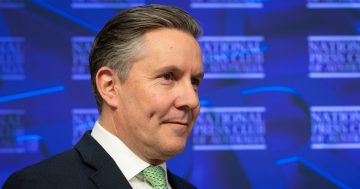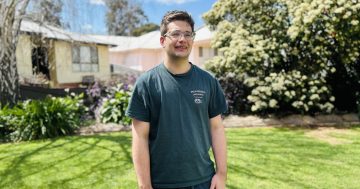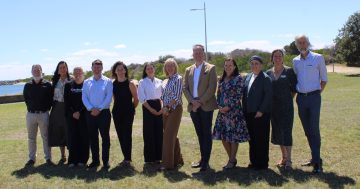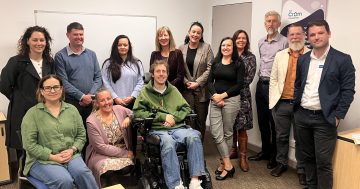
The new Thriving Kids program is set to divert kids with autism off the NDIS. Photo: @dfuentesphotostock.
Families of children with autism and developmental delays should not fear upcoming changes to divert them from the National Disability Insurance Scheme, according to Interchange Illawarra CEO Jake Pearson.
Mr Pearson said the shift of therapy services out of the NDIS and back into the health and education systems would ultimately make support easier to access and deliver better outcomes.
Called Thriving Kids, the program was flagged by Health Minister Mark Butler this week and is set to roll out in July next year, but will be funded jointly by the Commonwealth and the states and territories.
Already, the Federal Government has committed $2 billion in the budget for the Commonwealth’s initial share of the new program’s costs for the scheme, which will be directly targeting services for those children.
It follows recommendations from the NDIS Royal Commission and NDIS Review reports handed down two years ago.
“This isn’t something that’s unexpected and it’s something I think, generally speaking, will be welcomed by the industry,” Mr Pearson said.
“The NDIS was never designed to be the only source of support for people with disabilities, and it certainly wasn’t designed with children in mind.
“I don’t think it serves children and young people that well.
“It’s crazy to think we had a disability system that provided social and home care supports, but has also dragged in medical-based supports like therapy.”
Under the current system, therapy services such as speech pathology, physiotherapy and occupational therapy for children with autism and developmental delays have been managed through the NDIS since state governments withdrew from providing these services when the scheme launched.
“We’ve now got psychologists, physios and occupational therapists working in organisations that are not health organisations,” he said.
“They should be part of the health system – people with disabilities are people of the community and they should expect to receive all their health services through the health system like everybody else.”
Mr Pearson said as a result, the NDIS had become too big, too broad, and the bureaucracy had not been able to handle what it needed to do.
However, he said the success of the Thriving Kids program would depend on state governments recommitting to providing these essential services through their health and education systems.
“If you speak to anybody who provides services under the NDIS, or anyone who uses the service, they’ll tell you that the NDIA is horrible to deal with and incredibly bureaucratic,” he said.
“My hope is that this injection of money from the Federal Government will convince the states to come back to the party and make sure that services are integrated with education and health, because that’s in the best interest of children.”
Mr Pearson said this was how it should have been from the start, with the changes promising to reduce administrative burdens on families and service providers, who struggle with NDIS bureaucracy.
More importantly, he believes the integration will create better outcomes for children.
“There’s an opportunity for therapists to be made to feel more welcome and included in school-based programs where children are doing their learning,” he said.
“If we build these things back into education and health, there’ll be a more holistic approach to how that child and that young person receives their support that contributes to their development.”
While acknowledging that change could be scary for families accessing NDIS services, Mr Pearson said there were long-term benefits.
“For those people that have children that are accessing the NDIS, they’re going to be really nervous about this stuff,” he said.
“But this is an opportunity to make the system more logical and efficient, and it’s going to be in the best interests of children and young people.”
He also supported the initiative to include new Medicare bulk-billed items for developmental checks for three-year-olds, making early intervention more accessible through the regular health system.
“It follows that idea that any child, whether the child has a disability or not, should be able to access medical assistance and support through the medical system,” he said.
“That’s where allied health professionals should sit, and that’s where people should be able to access their services.
“I see that as a step forward to make access easier as well.”


















